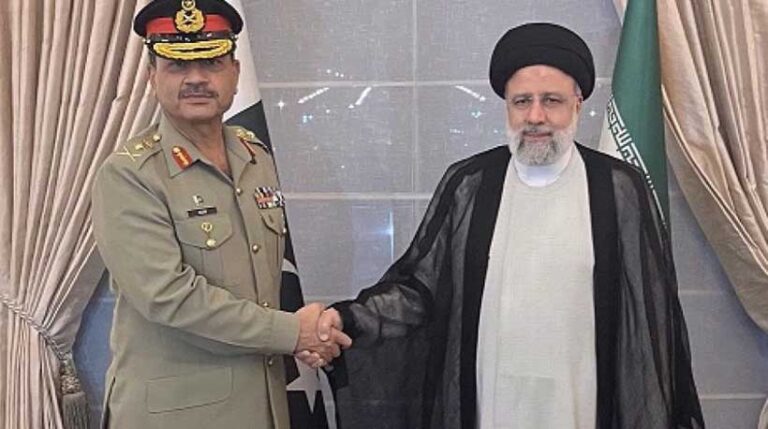Iranian President Ebrahim Raisi’s recent visit to Pakistan is an important step in strengthening bilateral relations between the two countries. The main objective of President Raisi’s visit to Pakistan is to strengthen the leadership of bilateral cooperation between the two countries in the areas of commerce, connectivity, energy and agribusiness.
The two countries’ leaders were alerted to the need to expand bilateral contacts in multiple fields by signing several Memorandums of Understanding (MoUs) during this three-day visit. The agreement on the construction of the Rimdan-Gabd Joint Free Zone was signed by the Presidential Advisor and Secretary of the Supreme Council of Iranian Free Trade and Industrial Special Economic Zones and the Secretary of the Pakistan Investment Commissioners Committee during this visit. .
Iran’s Ministry of Roads and Urban Development and Pakistan’s Ministry of Science and Technology also signed a memorandum of understanding on mutual recognition of standards between Pakistan and Iran. Other ministries of the two governments have signed a number of other memorandums of understanding to explore new possibilities for bilateral cooperation. Eight agreements were reached on the first day of the visit, covering a wide range of topics including trade, research, technology, agriculture, health, culture, and justice.
This visit is of greater importance to both governments, given the evolution of the regional and global world order and the numerous non-traditional dangers to the international system, such as terrorism. The national leaders of Iran and Pakistan have demonstrated a willingness to continue to proactively address the issue of terrorism and organized crime, despite having notable counterterrorism records.
Iran and Pakistan could increase their current trade volumes by better integrating their respective business communities. This could be achieved by focusing on key security issues. Therefore, developing a collaborative and comprehensive approach to addressing the threats posed by non-state actors will ensure the growth of trade linkages between two-way business groups. Strengthening the social ties that already exist between Pakistan and Iran at the cultural and religious level will further increase the potential for foreign direct investment in both governments.
One plausible explanation for the flourishing trade relationship between the two countries’ leaders could be the strengthening of interpersonal ties in areas directly adjacent to their common border. To protect geographic ties at strategic, political and diplomatic levels from misunderstanding, formal national authorities of both countries will be able to address common security challenges through a formal, agreed-upon framework. Observe the ongoing and multifaceted political dialogue and mutual diplomatic assistance between the two countries.
One factor that could prompt leaders in Tehran, Islamabad, and Beijing to actively participate in and support China’s evolving international trade strategy is the expansion of commercial ties between these three countries. China’s influence over Pakistan and Iran’s current trade plans is a key factor in allowing Islamabad and Tehran to exploit their maritime potential without stirring up serious mistrust toward each other, especially regarding port infrastructure.
Pakistan’s involvement in establishing geographical links between Iran and China for business purposes is also due to Islamabad’s increasing dependence on the geo-economic aspects of the global economy. With China and Iran as neighbors, Pakistan’s trade ties are growing, which could help Islamabad consolidate its position in the BRICS framework, an international organization that seeks membership from other parts of the world. .
In addition to paying special attention to the changing power relations in the global geoeconomic scene, the leaders of Iran and Pakistan also address the challenges facing the Islamic world, especially Palestine and Kashmir, which call for the active involvement of Islamic countries. The concern could not be overlooked. . Pakistan and Iran may be able to contribute effectively to this non-traditional approach by taking a more practical and less theoretical stance, given the highly secure environment in which the Islamic world finds itself. There is.
Given the aforementioned characteristics of bilateral relations between Iran and Pakistan, the leaders of both countries are willing to pursue bilateral cooperation in their respective foreign policy models, even in the face of potential obstacles to Iran and Pakistan’s common goals. It can be easily concluded that the company continues to be dedicated to maintaining the cooperation.
This visit will significantly bring Pakistan-Iranian cooperation to the targeted level, as evidenced by the limited history of multi-level cooperation between the two countries and the undeniable presence of cultural, historical and religious ties in bilateral exchanges. will move forward.
Improved national-level political communication between the two countries would encourage their leaders to change their customary patterns of diplomatic relations by considering world politics beyond predetermined notions of the international system. may become easier.

